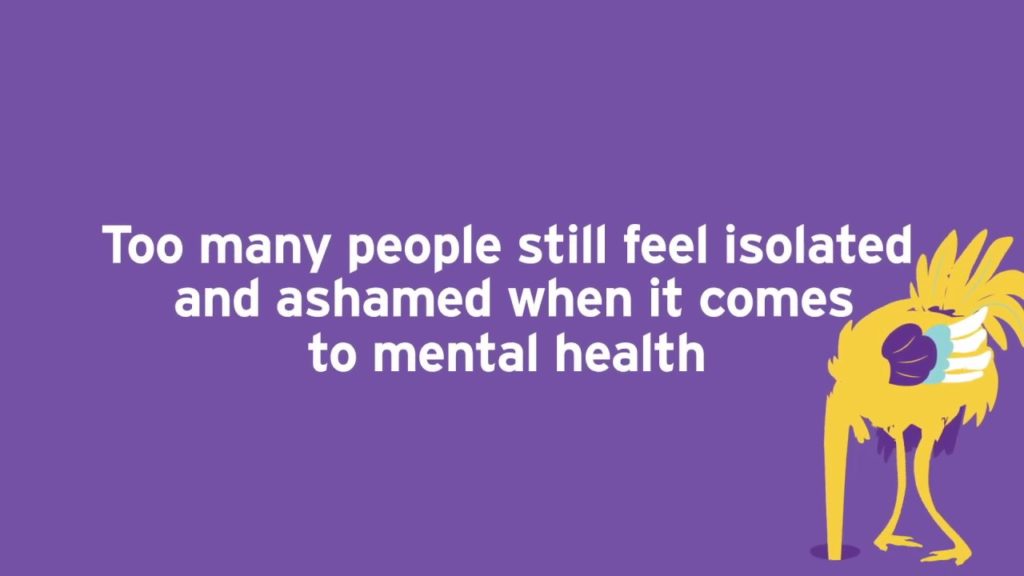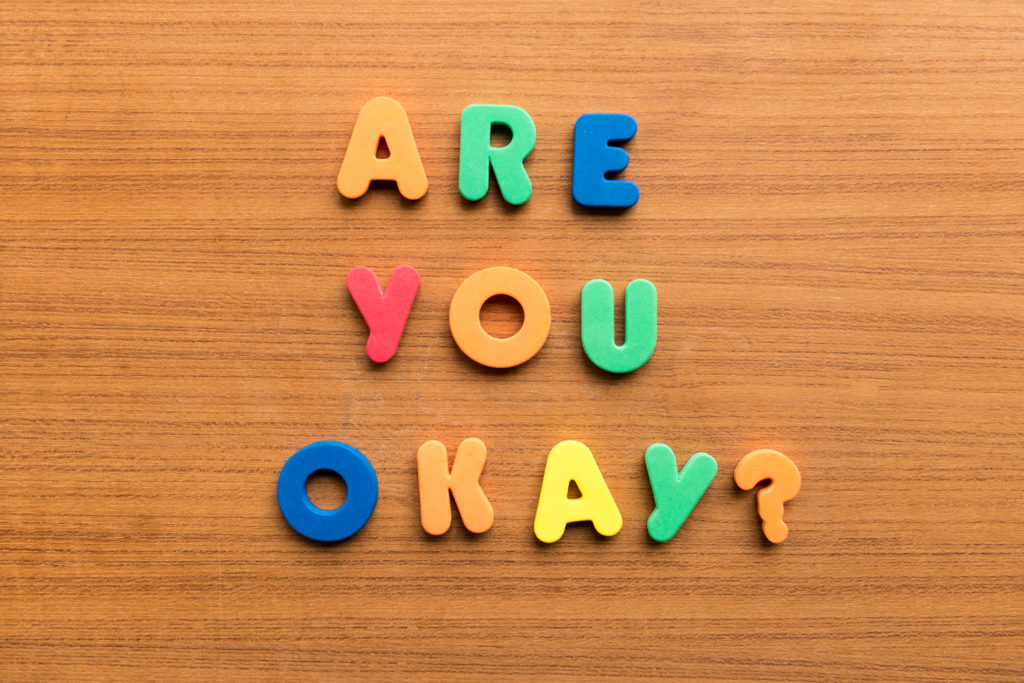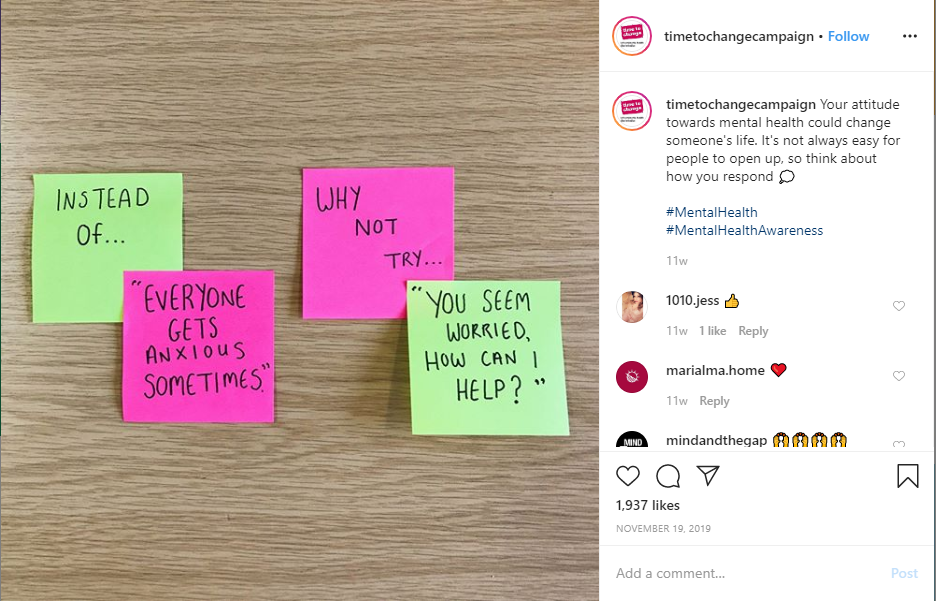Time to Talk Day 2020 – Tips for Talking about Mental Health
Mental health problems affect 1 in 4 of us, but too many people are made to feel isolated, ashamed and worthless because of this. Today is Time to Talk Day, an event that happens every year to encourage people to be more open about mental health – to share their feelings, talk and listen to others to help change lives.
Talking about mental health isn’t always easy, and it can feel slightly awkward, but it doesn’t have to be. Starting the conversation is the hardest part but it’ll soon become easier. One conversation can change someone’s life and just being there for someone can make a huge difference.
Remember mental health can happen to anyone at any time, and if you are suffering it’s important to remember you aren’t alone. Legendary boxer, Frank Bruno MBE, who has bipolar disorder and has struggled with his own mental health, said “Mental illness can happen to anybody. You can be a dustman, a politician, a Tesco worker… anyone. It could be your dad, your brother or your aunt.”

Lauren from Time to Change, the mental health charity who pioneered Time to Talk Day says “It’s important that conversations happen at times and in places that feel natural. Sometimes it’s easier to talk about our feeling when we are doing something else. Driving in the car; jogging around the park; eating breakfast in the café. The more typical the setting, the less unusual and uncomfortable the conversation can feel.”
Tips for starting a conversation about mental health
There is no right way to approach the subject of mental health, but we know it can be hard starting that conversation. Below we have listed some tips that will help you to get talking and will ensure you’re approaching it helpfully.

Find a good time and place
Sometimes talking face to face can be intimidating, it can feel like you’re put on the spot and many people may feel awkward in this situation. Sometimes it can be easier to talk side by side, or whilst you’re doing something else to distract them from feeling uncomfortable. Try talking about it whilst you do something else. Start a conversation whilst you’re on your lunch break or cooking, whilst walking or working out, when you’re stuck in traffic or on the commute to work. There is no perfect place to discuss mental health, but finding a time when it feels more natural can help people to open up easier.
You don’t have to talk face to face
Following on from the last tip, you don’t always have to talk in person. Some people may find it easier to talk or open on the phone, via text or direct messaging. Sometimes we don’t see our friends or family often because they may not live nearby and life gets in the way, but don’t let this stop you from checking in on them. If your main form of communication with someone is through text, check in with them on there. Social media is a great way to catch up with people or keep in touch. If a certain someone has been quiet online recently or posted something that may make you think they are struggling, reach out and make sure they’re okay.
Ask questions and listen to their answers

Asking the right questions is a good way to encourage a conversation about mental health, and give someone the chance to express how they feel. They can also help you to understand their experience much better. Try asking open questions which give the person the space to express their true feelings such as “How are you feeling?”, “how does that affect you?”, or “what does that feel like?” Just listening to what people have to say and giving them a chance to talk about their feelings can make a huge difference.
Don’t offer quick fixes
Mental health issues can be complex and varied, learning to manage and recover from them can be a long and tough journey. They often can’t be ‘fixed’ by a simple trick and the chances are they’ve likely already considered and tried a variety of different tools and strategies. If you haven’t ever suffered from mental health issues yourself it can be hard for you to understand how someone is feeling and why these simple fixes don’t work. It’s hard to see someone you care about struggle but try to resist offering quick fixes as this can be frustrating and feel as though you’re minimising their problem. Just talking can help and unless they ask for advice, it’s best just to listen and support them.
Don’t minimise their problems

Try not to respond with statements that minimise how they are feeling or what they’re going through. You may think you’re helping them feel better or relating to them by saying ‘Everyone feels anxious sometimes’ or ‘You’re just having a bad week’ but it can make them feel as though you aren’t taking them seriously. There is a difference between having a bad week and feeling a little down and a mental health problem like depression which can be debilitating. Simply listen to what they have to say and try to understand, the chances are they don’t expect you to be able to relate, so you don’t have to try to.
Talk about yourself
Talking about yourself and opening up to someone can help them to open up themselves. If you create an environment of sharing and openness then it can help make someone feel more comfortable around you and share their feelings too. Even if you just share something you’ve been worrying about or share an experience of how you felt down – it doesn’t have to be a mental health problem if you have never experienced one. This will show that you’re happy to talk about feelings and that there won’t be any judgement.
Don’t treat them any differently
If someone has a mental health problem, it doesn’t make them a different person. When someone opens up about mental health, they often don’t want to be treated any differently – and this can be a huge reason why they don’t want to open up. When someone opens up, the best way to support them is to keep it simple and treat them the way you normally do. This can go a long way in helping them to feel accepted and show that having a mental health problem won’t change the way people feel about them.

Let them share as much or as little as they want
Some people may not be ready to open up and talk about what they’re going through. Don’t try to push them. Let them lead the discussion at their own pace. You may be the first person they have ever discussed this with and the fact that you have tried to start a conversation and listen to them can make it easier for them to open up another time.
Mental Health in the Workplace
The Mental Health Foundation reported that 91 million working days are lost a year through mental health illness, and it costs a huge amount in lost productivity through absenteeism and presenteeism. It is reported that better mental health support in the workplace can save UK business up to £8 billion per year and increase productivity by as much as 12%.
David Jackman, one of the mental health professionals here at Kays Medical, says “Helping others maintain good mental health is easy, talk to them, spend time with them, show them you care. Overcoming our fears about talking to others, well, that can be the hard part.”

The more conversations we have about mental health, the more we can break down the stigma associated with it and help people to open up. This year, Time to Talk Day is using the popular game ‘Would you rather?’ to help break the ice and encourage people to talk about mental health. They have created several downloadable resources you can use to start conversations in your workplace, including this workplace conversation pack and this workplace activity pack. Why not arrange an event in your workplace to encourage employees to talk about their mental health?
Mental Health First Aid Courses
Kays Medical can offer Mental Health First Aid Courses which can help employers and employees to; identify at-risk individuals and communicate with those in crisis, design and implement a basic plan of action for individuals at risk/in crisis and offer advice on positive changes which can be implemented in the workplace to help improve mental health. These courses can help ensure the mental health and well-being of your staff is catered for, and mean there is always someone there for staff to open up to when they need to. Contact us today to find out more about how we can help your business.